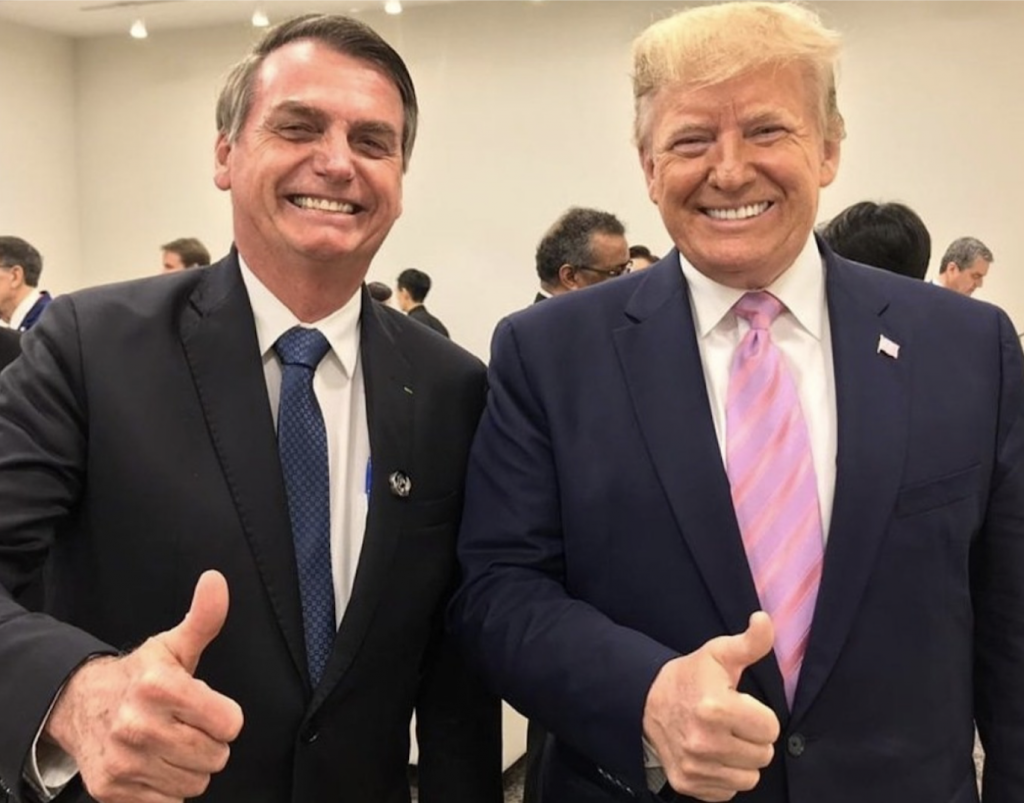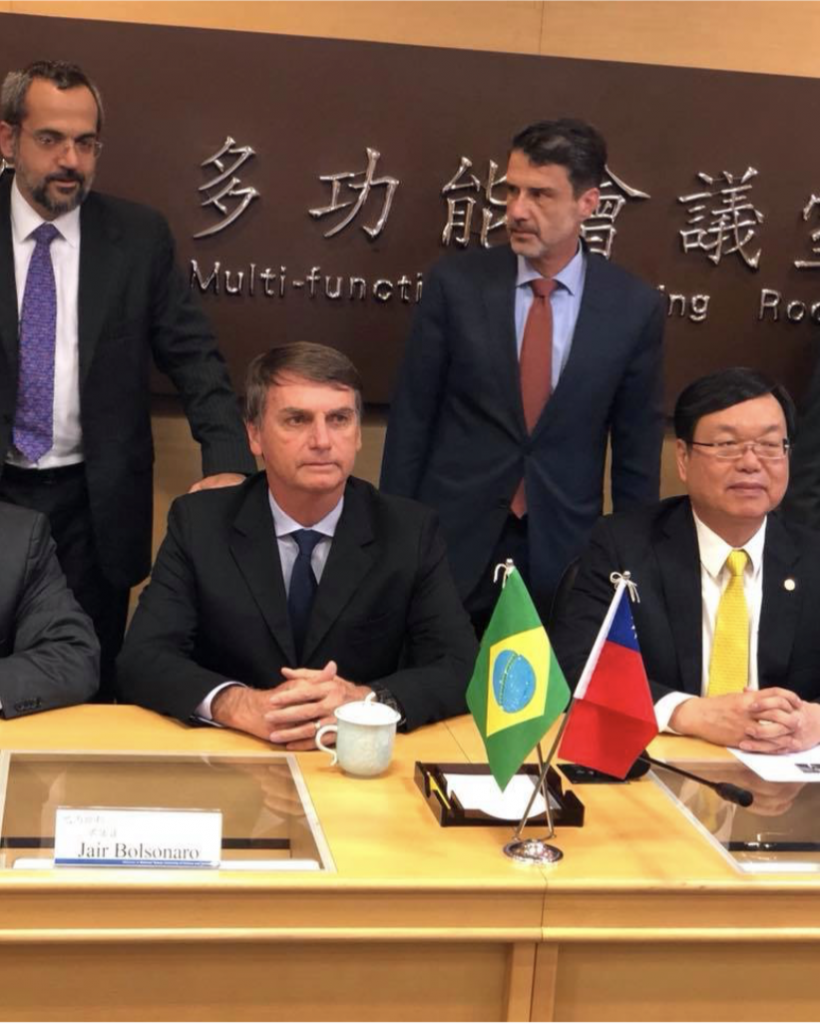

Bolsonaro, a far-right populist, was elected on a wave of discontentment with Brazil’s traditional politicians. A stumbling economy, rising crime rates, and huge corruption scandals served to diminish confidence in traditional parties, such as the PT and the PSDB. Bolsonaro stitched together a coalition of supporters including Evangelical Christians, the country’s politically powerful agribusiness magnates, and the military, in addition to previously undecided middle-class voters. Even before being elected, it was clear that his foreign policies would be driven by ideology more than by pragmatism. On the campaign trail, his criticisms of Venezuela as a Marxist threat to Brazil was the kind of heavily ideological claim that marked his strategy. His choice of Ernesto Araújo to be the Minister of Foreign Affairs reflects his links to a fringe movement of writers, led by Olavo de Carvalho, who decry globalism, “cultural marxism”, and “climatism”. Bolsonaro constantly praised Trump and his handling of U.S. affairs, and from day one pursued better relations with Washington. Trump has praised Bolsonaro and found an ally in Latin America willing to pursue the same far-right priorities in international relations. However, even if both countries would benefit from an increase a commercial partnership, they face significant political and pragmatic differences in pursuing it. These differences, in the form of trade barriers and other policies, have long prevented increased trade between both nations. Additionally, pragmatists inside the government have repeatedly stopped Bolsonaro from taking actions that would jeopardize Brazil’s economy in favor of ideological bickering. For example, Brazil’s proposal to move its embassy to Jerusalem would have harmed its significant exports of poultry to Middle Eastern countries. Bolsonaro’s suggestion that Brazil let the United States build a military base on its territory was quickly denounced by top military officials. Additionally, several unnecessary conflicts have happened, such as fighting with France and Germany over deforestation in the Amazon, and ditching China, Brazil’s largest economic partner, for a visit to Taiwan. Therefore, Bolsonaro’s attempts to remake Brazilian foreign policy in his image have been significantly held back by the pragmatic economic interests that hold his coalition together. He has also been facing blows, such as Holland blocking the long-awaited EU-Mercosur trade deal over Brazil’s destruction of the Amazon, and even Trump backpedaling on his promises for support to Brazil’s candidacy to the OECD and imposing tariffs on Brazilian steel exports. It’s clear that Brazil currently has a fragile standing in the global economy—a standing which has informed the pragmatism of practically all presidential administrations since Geisel. Bolsonaro will likely keep attempting to pursue ideological avenues in his foreign relations, but he will be met by resistance from his own coalition, important trade partners, and even Trump, whose unpredictability and unloyalty to allies could turn against Brazil at any moment.
Articles
Context of Bolsonaro’s rise to power
Wendy Hunter, Timothy J. Power, “Bolsonaro and Brazil’s Illiberal Backlash” | English
Bolsonaro’s Foreign Policy, relationship with the U.S., Pragmatism and Ideology
Peter Hakim, “Remaking US-Brazil Relations: The Odyssey of Trump and Bolsonaro” | English
News commentary on current Brazilian Foreign Policy:
Guilherme Casarões “Making sense of Bolsonaro’s Foreign Policy at Year One” | English
Ernesto Araújo, Current Minister of Foreign Affairs, Bloomberg open-ed: English



